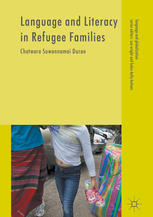

Most ebook files are in PDF format, so you can easily read them using various software such as Foxit Reader or directly on the Google Chrome browser.
Some ebook files are released by publishers in other formats such as .awz, .mobi, .epub, .fb2, etc. You may need to install specific software to read these formats on mobile/PC, such as Calibre.
Please read the tutorial at this link: https://ebookbell.com/faq
We offer FREE conversion to the popular formats you request; however, this may take some time. Therefore, right after payment, please email us, and we will try to provide the service as quickly as possible.
For some exceptional file formats or broken links (if any), please refrain from opening any disputes. Instead, email us first, and we will try to assist within a maximum of 6 hours.
EbookBell Team

4.7
36 reviewsThis book examines the agreements and discrepancies between public understanding and assumptions about refugees, and the actual beliefs and practices among the refugees themselves in a time of increasing mobility fuelled by what many call 'refugee crisis’. With a focus on language and literacy practices among recently-arrived Karenni refugee families in the United States, this book explores the multilingual repertoires and accumulated literacies acquired through the course of the refugees' multiple movements. Through the lens of transnationalism, the author emphasizes that despite their numerous struggles, the refugees daily and diligently use and strategize their old, emerging, and evolving linguistic and literacy resources to make the best of their resettlement. This book will shed light on the language and literacy practices among transnational and diasporic communities, minoritized or marginalized groups for researchers in these fields as well as practitioners and resettlement agencies working with refugee populations.